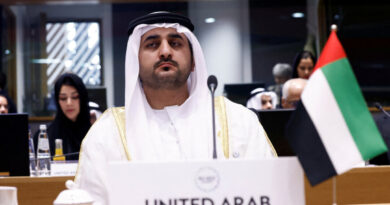Cancer, Strokes, and Heart Attacks: Labor’s Campaign Against Nuclear Sparks Backlash
Labor has ramped up its fight against the Coalition’s nuclear plan with bold health warnings.
The Labor Party has ramped up its opposition to the Coalition’s nuclear energy proposal with a contentious social media campaign.
A video posted on Labor’s official Instagram account features Dr. Margaret Beavis, vice president of the Medical Association for Prevention of War, warning of significant health risks associated with nuclear power.
“There are definite increases in cancer, strokes and heart attacks with nuclear power,” Dr. Beavis said in the video. “With renewable energy, we have much safer alternatives. From a health perspective, nuclear makes no sense.”
She also claimed that workers in the nuclear industry face higher risks of cancer and other health issues due to radiation exposure.
“There are significantly increased rates of cancer, heart attacks and strokes among the workforce in the nuclear industries … it’s very clear that working with radiation has no safe lower limit,” she said.
Further, Dr. Beavis linked nuclear power plants to heightened cases of childhood leukaemia.
“It’s more than doubled for families living within 5 kilometres of a nuclear power plant… there is increased risk for at least 50 kilometres from a nuclear power plant,” she asserted.
The video has been met with backlash, with critics questioning the validity of the claims. Some described the campaign as “embarrassing,” accusing Labor of scare tactics.
‘Hundreds of Millions’ Needed for Safer Reactors: Energy Minister
Energy Minister Chris Bowen responded reiterating the government’s stance on the economic and practical challenges of nuclear energy.
“The way you make nuclear safer is by spending hundreds of millions of dollars on each reactor to make it safer. And that’s money that Peter Dutton wants to spend—taxpayers’ money,” Bowen said.
He emphasised the growing global shift towards renewable energy, calling it the right path for Australia.
“We’re adding more renewables around the world every fortnight than get added every year. The world is moving to renewables, and in Australia’s case, we have the best renewable resources in the world.”
Bowen dismissed nuclear as an unsuitable option for the country’s energy needs, citing cost and delays.
“Nuclear is very, very expensive. Very, very slow. It is not the right answer for Australia. We need an Australian energy system designed by Australian experts for Australian circumstances. And no credible expert thinks that Peter Dutton’s plan is part of that future.”
Coalition Pushes Back, Calls for Mature Energy Debate
Opposition Leader Peter Dutton responded, saying Labor was running a “scare” campaign.
He described the video as “pretty tardy” and said much of the world relied on nuclear energy.
“It’s (Dr. Beavis) a Greens candidate. And I think, to be honest, what we need as a country is a mature debate about how we can have a reliable energy system, how we can have downward pressure on cost,” Dutton said.
“Our plan requires 54 percent renewables in the energy mix, but they’re a part-time power, and we have a full-time economy. The Intensive Care Unit at the hospital doesn’t work on wind and solar. It needs that base load power. The economy doesn’t run without permanent power.”
Dutton also pointed to Australia’s participation in the AUKUS agreement, which includes nuclear-powered submarines.
“The prime minister stood up, shook hands with the President of the United States and the Prime Minister of the United Kingdom to sign the AUKUS deal, which is the nuclear submarine, exactly the same technology that we’re talking about using in the civil industry.”
He criticised Labor for failing to engage in constructive dialogue on energy policy.
“Labor, instead of running around with these juvenile ads, needs to have a mature, adult conversation about what’s in our country’s best interests.”
Dutton linked the nuclear energy debate to broader economic issues, citing rising electricity costs and manufacturing closures under Labor’s policies.
He called for Australia to follow the lead of 32 countries currently using nuclear energy, including France, the United States, and Canada.
“There are 50 countries who are looking to sign up to nuclear. Australia is the only country of the top 20 economies in the world that hasn’t signed up or doesn’t intend to sign up to nuclear power,” he said.





